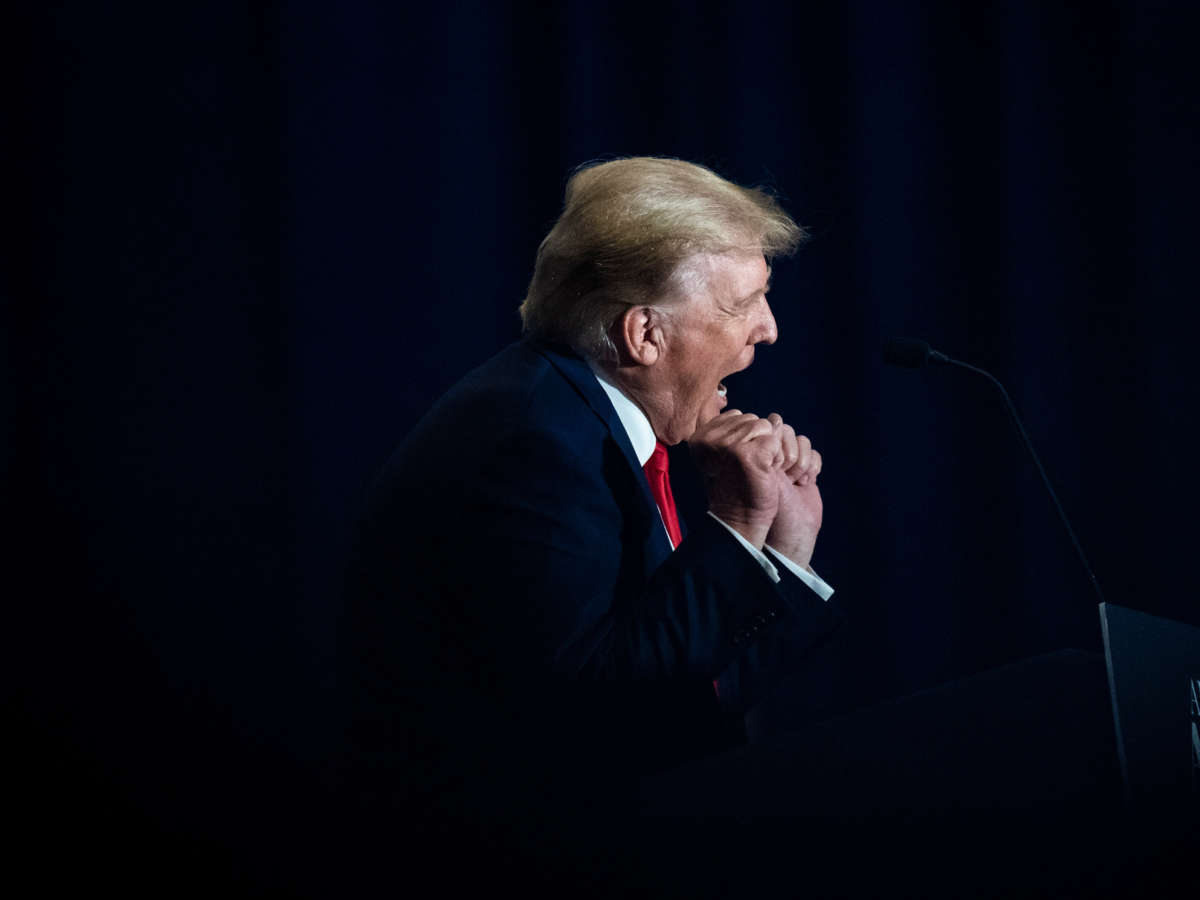Lawyers for former President Donald Trump have filed a legal motion to the D.C. Circuit Court, appealing a judge’s ruling from February that said civil lawsuits against the former president surrounding the January 6 Capitol attack can move forward.
In their argument, Trump’s lawyers claim that this and other lawsuits relating to the events of January 6, 2021, cannot move forward because Trump was still in office during the attack and therefore had “absolute immunity” regarding his speech to his loyalists. Absolute immunity is a legal standard that protects presidents from being held accountable for their words or actions if they are acting within their constitutional capacity.
The civil case was brought forward last year by two Capitol Police officers who believe that Trump’s incendiary rhetoric on January 6 — including telling his followers that they’d “never take back our country with weakness,” and ordering them to descend upon Congress — led to their “physical and emotional injuries,” and that his “wrongful conduct incit[ed] a riot.”
In his decision in February, U.S. District Judge Amit Mehta disagreed with the “absolute immunity” standard being used for Trump’s defense.
“The President’s actions [on January 6] do not relate to his duties of faithfully executing the laws, conducting foreign affairs, commanding the armed forces, or managing the Executive Branch,” Mehta wrote, specifically citing a president’s duties that are laid out in the U.S. Constitution. “They entirely concern his efforts to remain in office for a second term. These are unofficial acts.”
In their filing to appeal that ruling this week, Trump’s lawyers say that Mehta’s findings were wrong, and argue that Trump “was acting well within the scope of ordinary presidential action when he engaged in open discussion and debate about the integrity of the 2020 election.”
“The actions of rioters do not strip President Trump of immunity,” Trump’s lawyers claimed, adding that they believe the “scope of presidential absolute immunity” is being undermined simply because the “act in question is unpopular among the judiciary.”
Many legal experts have said that describing Trump’s actions on January 6 as being within his presidential duties is a flimsy argument at best, noting that Trump’s speech to his loyalists at the “Stop the Steal” rally in front of the White House appeared to be more political than presidential, and that it was reminiscent of his campaign rallies.
According to Dayna Zolle, an appellate counsel at the Constitutional Accountability Center and a former U.S. attorney, prior rulings from the judiciary render Trump’s arguments ineffective.
“Supreme Court precedent, as well as the separation of powers and policy considerations, compel the conclusion that Trump cannot escape liability for his actions, including encouraging, for his personal gain, the violent disruption of a constitutionally mandated session of Congress,” Zolle wrote in a column for Lawfare last year. “This conclusion is critical to preserving the essential principle that no one — not even a president — is above the law.”
“There is plainly no constitutional or legislative authority for an incumbent president to encourage the violent disruption of a congressional proceeding,” Zolle added, “especially one constitutionally mandated for the democratic transfer of power.”


